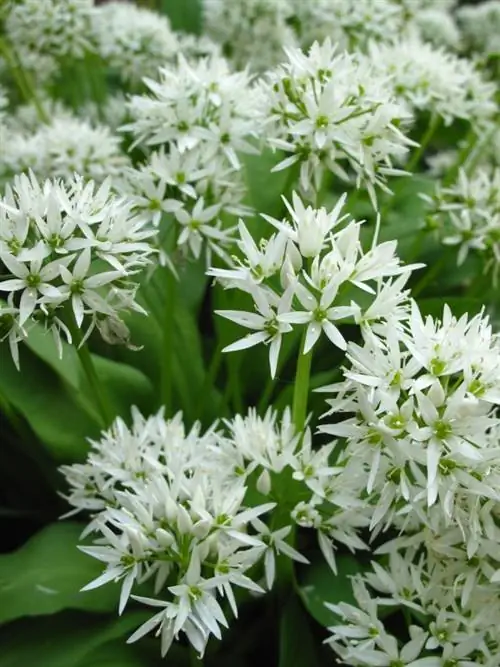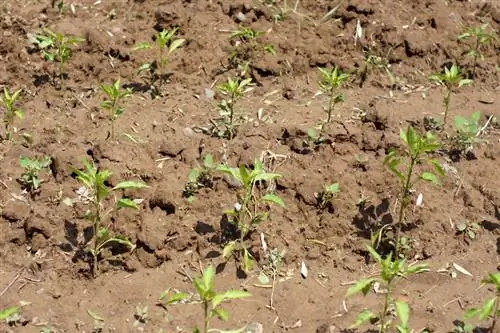- Author admin leonars@hobbygardeners.com.
- Public 2023-12-16 16:46.
- Last modified 2025-01-23 11:20.
Garden blueberries are the specially bred cultivated blueberries that are only very distantly related to the wild blueberries that grow in moor forests and clearings in this country. These produce larger fruits and also form taller bushes.

What are garden blueberries and how to care for them?
Garden blueberries are specially bred cultivated blueberries with larger fruits and taller bushes than their wild relatives. They need acidic, lime-free soil with a pH between 4.0 and 5.0 and a sunny location for optimal growth.
The benefits and harms of garden blueberries
Wild blueberry lovers usually don't want to know much about garden blueberries because they can hardly compete with wild-collected ones in terms of taste and vitamin richness. Nevertheless, garden blueberries offer other advantages besides greater protection against fox tapeworm. These include in particular the following advantages:
- the fruit juice does not turn hands and tongues blue
- the fruits are larger and juicier
- the bushes, up to 2 meters high, bear a lot of fruit
Planting garden blueberries
In most gardens, appropriate soil preparation is also necessary when planting garden blueberries from North America. Since the plants require a rather acidic and lime-free soil with a pH value between 4.0 and 5.0, cultivation in pots or large-scale soil replacement is usually necessary. For the ideal blueberry location, garden peat (€15.00 on Amazon) or rhododendron soil should be mixed with a little sand and a small amount of horn shavings as a mild fertilizer. Since the blueberries have more wide than deep roots, it is important to make sure that the planting hole is sufficiently wide when replacing the substrate. If you do not want to use garden peat for ecological reasons, you can acidify soil that is not too clayey and rather low in lime by mixing in spruce needle compost and sawdust.
Caring for garden blueberries
In a location with full sun, you should ensure there is sufficient water supply, especially during the harvest season from July to September. Since fruit is constantly ripening on the bushes, regular harvesting every few days is recommended. If there are more blueberries than can be consumed fresh, they can be boiled down to make jams, compotes and fruit juices.
Tips & Tricks
Cultivated blueberries for the garden grow much faster than their wild relatives in the moor forest. When planting, you should therefore maintain a distance of at least 1 to 1.5 meters between the individual plants in the row.






